
Josie Fouts is an accomplished para-athlete with Olympic aspirations who has been influential in advocating for advances in prosthesis and prosthetic technology, as well as the acceptance and inclusion of disabled athletes. She’s worked with and been sponsored by numerous brands over the years, and after years of wading through the headaches of brand sponsorships, she’s become jaded about bike industry brands’ methods and motivations for sponsoring disabled athletes.
In a recent interview with Singletracks, Fouts openly criticized the methods that bike industry brands use to select and sponsor disabled athletes, female athletes, and BIPOC athletes, among others.
“For me, as an Asian American woman with a disability, I checked three boxes for companies — woman, disability, person of color,” said Fouts. “‘Awesome! Instead of putting an equal amount of resources into three different athletes, we could just put a third of those resources into Josie, and then we save money, and we look good,'” is how Fouts characterizes the marketing discussions that happen behind closed doors.
“‘Awesome! Instead of putting an equal amount of resources into three different athletes, we could just put a third of those resources into Josie, and then we save money, and we look good.'”
She’s also extremely skeptical of the motivations behind the sponsorships doled out by bike industry companies that are sponsoring marginalized groups. “The Black Lives Matter movement, from 2020, really brought about this big wave of inclusion and diversity. So a lot of people who traditionally benefit from discouraging people who fall outside of their capitalist’s business plan, they kind of were forced — they were forced to actually put into the community.
“But things are much easier said than done. What ends up happening is, one company jumps on board with one athlete who checks the box. And then all these other companies jump on board, too. They’re like, ‘Well, they did it. So why shouldn’t we? Let’s just do that copy and paste,'” said Fouts.”Then every other company is like, ‘Okay, yeah, we’re just gonna copy that too,’ There’s no real thought process that goes through there. And that’s the way it’s been. And I totally see it that way. It’s not a personal thing. But that creates division within that community that they’re actually trying to support. When they don’t spread the resources around, you’re actually creating a lot more barriers for those people.”


Tread Setters: The back story
Josie Fouts recently released a film called “Tread Setters,” which was intended to raise awareness for the para-athlete community, advocate for the addition of mountain biking as a Paralympic sport, and the need for better prosthetic interfaces for mountain bikers. The film documented five para-athletes as they rode the 100-mile White Rim Trail in less than 24 hours.
Unfortunately, Fouts’s biggest challenges came well before the filming even began.
Originally, Fouts had several sponsors on board for the film, with a budget of over $50,000. But she didn’t want the film to just focus on herself — she wanted to feature other adaptive riders, because she realized that she’s far from the only image of an adaptive mountain biker.
“I told the original film crew, ‘It’s really important to me that these people show up too, because I know that I’m getting a lot of opportunities, but the sport isn’t gonna go anywhere if I just take all the credit,” said Fouts.
“Because the film crew didn’t want me to go with anybody else, they were like, ‘No, this is just about you. You should be grateful for this opportunity and for the support you’re given.’ But I knew in my adaptive community, or the disabled community, there were other people who’ve already done this. Even though there’s a mass amount of people who would congratulate me if I did it alone, I am still trying to do right by the adaptive and disabled community. So I put my stub down, and I was like, ‘No, like they’re coming with us.'”
“When a cycling industry company broke that $25,000 contract, they actually freed me. They freed me from silencing me, from speaking up and speaking the truth.”
Unfortunately, the film crew decided to pull out of the project. Fouts learned the hard way that the sponsorship deal was written with the film crew and not with Fouts directly. When the crew left, they took $25,000 of sponsorship money with them — which was half of her budget at the time. Now, Fouts had to find a way to fund not just one but five athletes on a budget that was half the size.
And she still managed to make the film happen.
The three ultimate sponsors for the film were the National Ability Center, Osseointegration, and Outride Foundation. After the first bike industry brand pulled out, no other brands stepped up to fill that gap.
“When a cycling industry company broke that $25,000 contract, they actually freed me. They freed me from silencing me, from speaking up and speaking the truth,” said Fouts. “People talk about it behind closed doors, but when you’re tied to it, because they’re supporting your journey that’s paved, literally and metaphorically, like to the Paralympics, then they tie your hands behind your back, you know?”
“But it’s funny — when you only have one hand, you can’t really get handcuffed behind your back. So you always get free somehow,” Fouts concluded with a laugh.
Fouts declined to mention which sponsor pulled out of the film, but she did note that she’s currently supported by Shimano and is also representing the clothing brand Lynt. In addition to the film sponsors mentioned above, Fouts is also sponsored by The Challenged Athletes Foundation, which provided her adaptive mountain bike; The Radical Adventure Riders, which supported her training; Hanger Clinic, which provided her prosthetic sleeve; and Merts Hands, which provided her cycling attachment. “As you can see, my support system is rooted in the medical equipment industry and non-profit organizations,” said Fouts.
“I’m very grateful for the sponsors I’ve mentioned above, and I would be not be able to attempt such a feat without my prosthesis. Thus, my next mountain to tackle is providing the same resources to those who do not have the same opportunities as me. Specifically, I will be fundraising for sustainable prosthetic care for amputees in Ecuador!”
If you would like to help support Fouts’s latest project, you can donate to her Range of Motion Fundraiser.



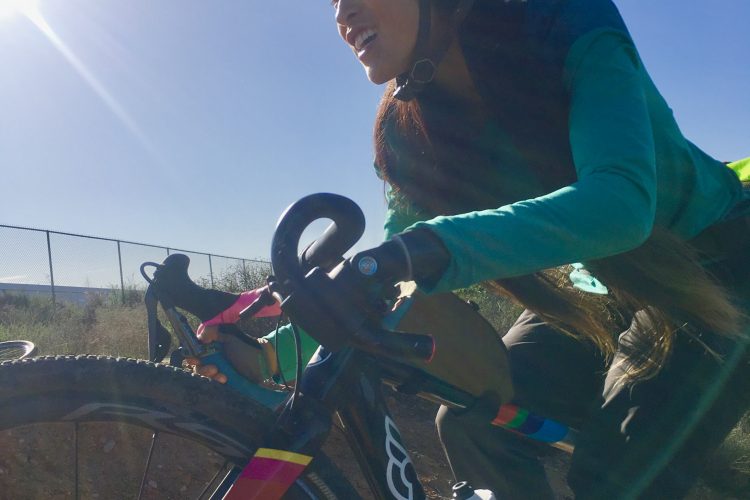
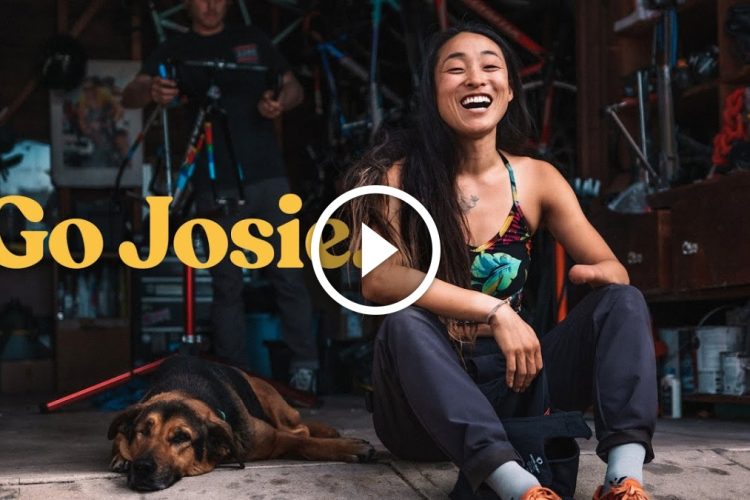

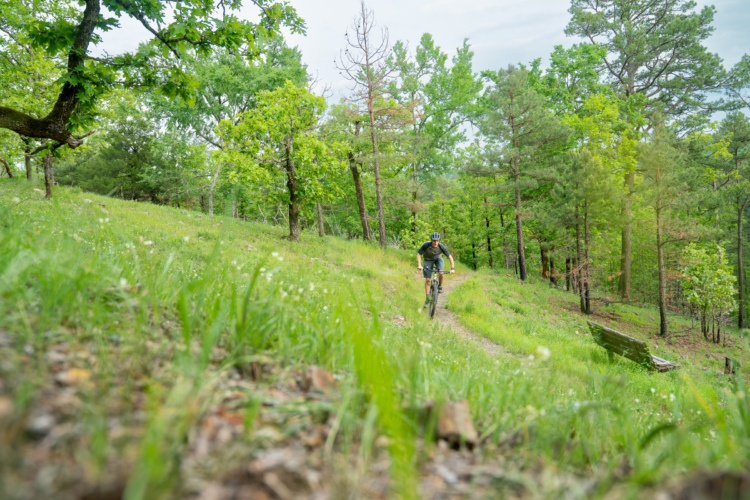
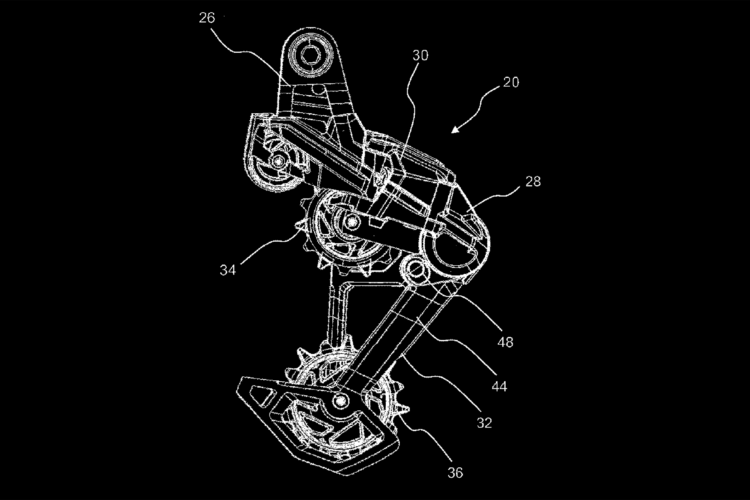

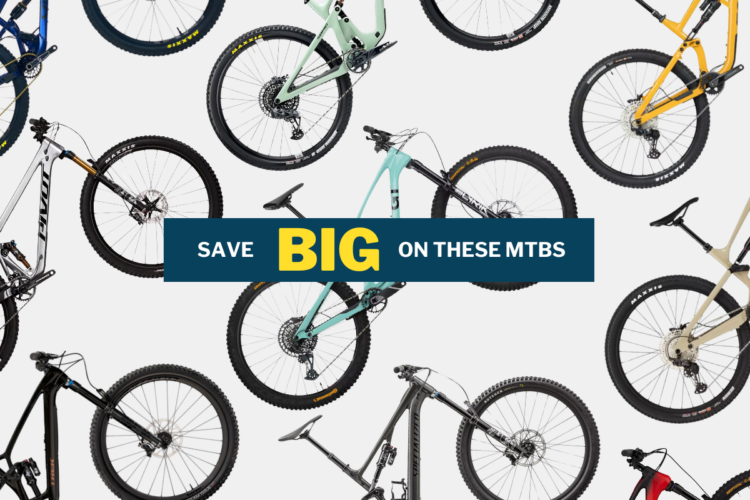

6 Comments
Jun 14, 2024
Jun 14, 2024
Jun 15, 2024
Jun 15, 2024
Jun 15, 2024
Jun 15, 2024